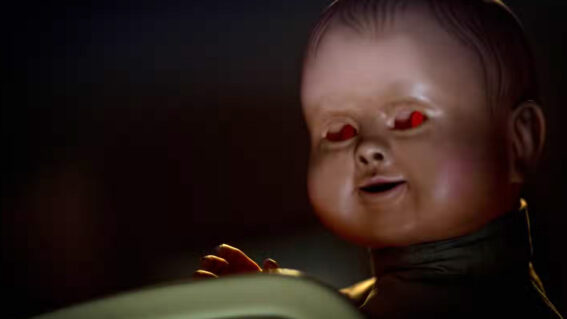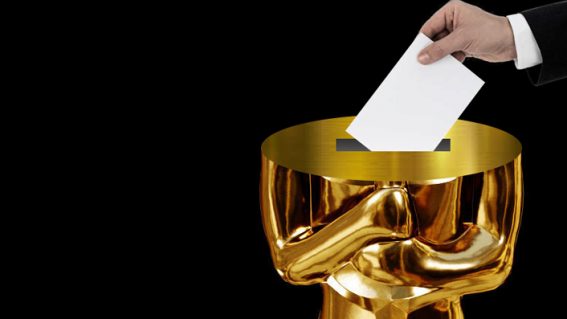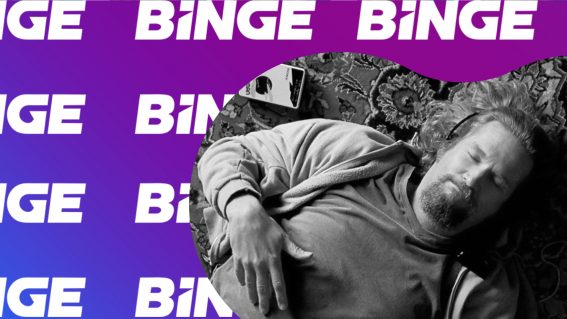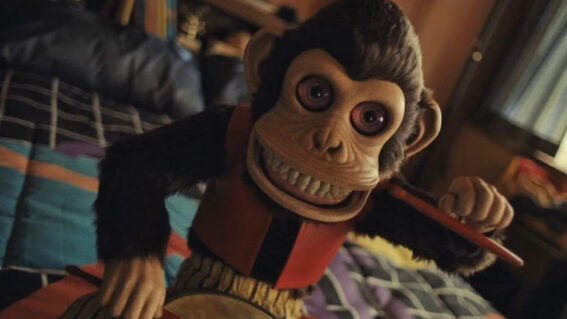The strike against AI: what will the future of Hollywood look like?
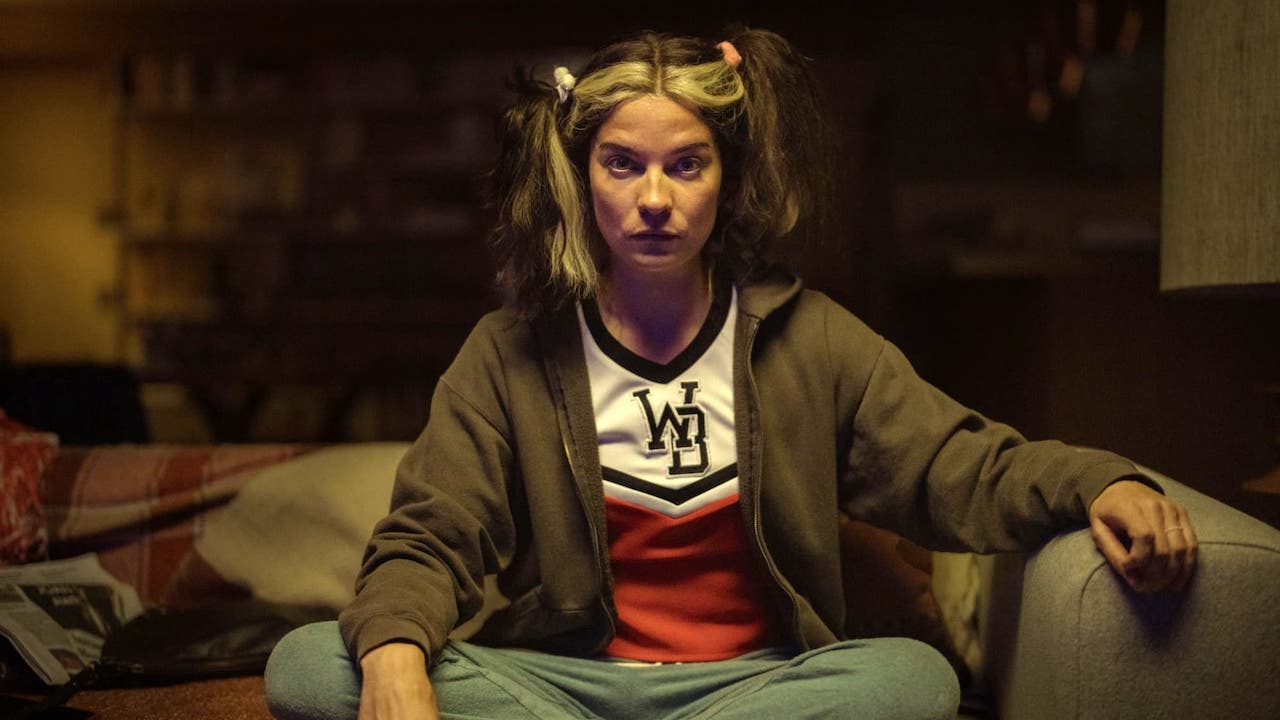
As Hollywood unions SAG-AFTRA and the WGA continue their strike against studios, Luke Buckmaster analyses the movement’s anxiety surrounding AI-generated content and predicts “a new era of bespoke real-time experiences.”
Dystopian productions based in the near future generate extra oomph and cultural currency by tapping into contemporary anxieties, inflating present issues for dramatic purposes. Joan is Awful, the most topical episode of Black Mirror‘s latest season, arrived smack-bang in the midst of the biggest Hollywood strike for decades, writers and actors downing tools to fight for better pay and conditions. Its cultural impact was unusually immediate, not just crystallising fears about the influence of artificial intelligence but helping push generative AI to the front of discussions.
One union member of America’s Screen Actors Guild recently told Deadline that actors view it as a “documentary of the future.” On Twitter (or whatever Elon Musk is now calling it) film industry folk also drew connections between the strike and the show, Oscar-winning writer Travon Free for instance fulminating: “These motherfuckers are literally trying to ‘Joan is Awful’ SAG-AFTRA like we all didn’t just see it.”
To recap, Annie Murphy’s titular protagonist is a tech executive whose existence is turned into a popular soap opera for a streaming platform. Her daily activities are captured through real-time data and moulded by AI into dramatic recreations. Joan can’t stop it (damn those terms and conditions!) and neither can its star Salma Hayek, because it’s not really Hayek on screen—rather a perfect deepfake.
For actors, this representation of a virtual double taps into a fear of losing control of their likeness, which Hollywood isn’t exactly quelling. During a press conference last month, union negotiator Duncan Crabtree-Ireland reported that the studios “proposed our background performers should be able to be scanned, get paid one day’s pay, and their companies should own that scan, their image, their likeness, and be able to use it for the rest of eternity in any project they want with no consent or compensation.”
Ask the average person what they think of this and almost everybody will say it’s unfair. But the union would be unwise to make too much of it during negotiations. It’s something the studios could cede ground on, knowing they’ll soon be able to cheaply and effectively create any number of convincing virtual extras to pepper their background shots. No scanning or recompense necessary.
Where likeness will really be an issue is in the case of celebrities such as Hayek, whose famous faces could be recreated ad infinitum and used by producers as virtual putty, like in Joan is Awful. The increase of virtualised performers will exacerbate a trend that’s long been present in filmmaking: the transformation of motion pictures into computer-illustrated art, more like a form of painting than a photographic medium.
The current strike is unusual in that both sides sense the winds of change blowing, but neither know precisely what’s at stake. How do you win a war when you don’t know what you’re fighting for? Begging the question: if Joan is Awful really is a documentary of the future, or something vaguely like it, what might that future look like beyond ideas expressed by Black Mirror?
Conversations around generative AI writing new episodes of Law and Order or the 700th Star Wars spin-off will soon feel retrograde. One significant aspect of Joan is Awful is that its writer, Charlie Brooker, focuses on things humans could never achieve. Real people can’t follow a subject around, record their daily activities, then stage, film and edit a dramatisation streamable the following day. The never-ending Seinfeld parody show Nothing, Forever also couldn’t be made be made by real people either; these stories need to be told by computers.
Not long ago, just the idea of stories told by computers would’ve sounded far out. But hold onto your knickers, because we’re entering a new era of bespoke real-time experiences content. Some of it, like Nothing Forever, will be the same for everybody, intended as communal experience. Other productions will offer real-time content tailored to individuals and informed by data submitted by and/or harvested from the user.
#MissionImpossible7 star Hayley Atwell on the SAG-AFTRA strike: “Streaming 40 years ago didn’t exist, social media didn’t exist. The existential threat of AI didn’t exist and there has to be a course correct in how we regulate all of these threats.” https://t.co/HFZkwuXJbL pic.twitter.com/o6TXWdVZrA
— Variety (@Variety) July 21, 2023
So, how might this look? Imagine you have an hour to kill. You tell Netflix you want an experience that lasts for 60 minutes. You’re in the mood for an intergalactic adventure. You’ll be the hero and have a side plot of romance. You don your VR headset and voila, there’s your entertainment. Or maybe you’re in the mood for something more passive. You want to watch a buddy cop comedy. You want Charlie Chaplin to team up with Viola Davis and bust a criminal syndicate run by Nicolas Cage. Or perhaps you want to watch a new episode of your favourite sitcom, which ceased (real world) production years ago. No problem.
These kinds of content will augment but not replace more traditional varieties. Throughout history humans have shown themselves to be social creatures who enjoy sharing experiences. So there’ll be “event” TV in which everybody absorbs the same thing and chews the fat about it afterwards. Productions with real human actors, written by real human writers, will be advertised as such, similar to how organic foods are marketed.
These of course are predictions. The future never unfolds exactly how you think it will. Like any major new technology, AI will be great in some respects and terrible in others. The invention of photography allowed English pioneer Eadweard Muybridge to prove, in 1878, that all four of a horse’s legs lifted off the ground during its stride. We don’t know what AI will show us, but we can reasonably assume it will affect virtually every trade in virtually every industry. Expect lots of confusion and messy negotiations in the years ahead. Hollywood—and Joan—got in there early.

